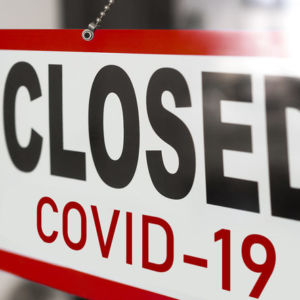The business community, both statewide and in the Delaware Valley, is venting its frustration after Gov. Tom Wolf vetoed a bill that would have given businesses some protection from COVID-related lawsuits.
Ever since the first lockdown orders in mid-March, leaders in numerous industries have clamored for something akin to House Bill 1737, which would have shielded businesses, hospitals and universities from lawsuits by customers or employees blaming them for contracting the virus.
“Shielding entities from liability in such broad fashion as provided under this bill invites the potential for carelessness and a disregard for public safety,” Wolf said in his veto statement.
That claim rings hollow for Guy Ciarrocchi, president and CEO of the Chester County Chamber of Business & Industry, saying the business community worked for months thinking it was winning cooperation from Harrisburg.
“This has been discussed publicly, privately on conference calls, Zoom calls, by email for months,” Ciarrocchi told Delaware Valley Journal. “And the fact that after all those conversations — on what was a very limited, very scaled back, very fair piece of legislation — we couldn’t find common ground with the governor is deeply disappointing and very frustrating.”
The many months of working on a bill now junked is one disappointment, Ciarrocchi said. But he argues the time that has been wasted is not limited to the past, because Wolf vetoed the bill on the last day of the legislative session.
“The practical matter is that there is no real opportunity for bringing full liability protection [in legislation] until probably February, which will hurt business, hurt employees and put Pennsylvania at a competitive disadvantage.”
The bill would have only applied to “action taken in response to and during the declared disaster emergency,” according to the Hospital and Health System Association of Pennsylvania, which also supported the bill.
A July letter signed by dozens of chambers of commerce across the state urged state lawmakers to take decisive action.
“The nature of a pandemic usually makes it impossible to prove contraction occurred at a particular location, but equally impossible to disprove — a fact that will no doubt be exploited,” the letter said.
The Pennsylvania Chamber of Business and Industry accused the Governor of favoring a single industry above others.
“Businesses across the Commonwealth struggling to simply survive were dealt yet another blow today as Governor Wolf vetoed critical liability protections; and instead backed opportunistic trial lawyers anxious to profit from this crisis,” it said.
The state saw a one percent decline in its unemployment rate from September 2020, to October, settling at 7.3 percent. However, the economic pain is easier to comprehend when comparing that figure to the previous year, in which unemployment in the state stood only at 4.6 percent — a year-over-year increase of 58 percent.
Eleven states had higher unemployment than Pennsylvania from that October set of data from the U.S. Bureau of Labor Statistics.
“Unfortunately, [the veto] is pretty much representative of the last seven months, which has been collections of business groups, collections of civic leaders working together, talking to a governor and an administration who have largely turned a deaf ear,” Ciarrocchi said.
The state has been dealing with a long-feared “fall surge” in coronavirus cases. While the daily case count in the commonwealth generally ranged between 500 and 1,000 new cases a day from June to September, the numbers began to rapidly increase in October.
The state saw an all-time high of 8,300 new cases on the Wednesday before Thanksgiving, according to the state’s COVID-19 dashboard.
On Tuesday, the governor announced the creation of new testing “strike teams” that will fan out across select portions of the commonwealth to boost testing with the hope “that increased testing will assist in determining the prevalence of the virus and assist [highly affected] counties in moving forward.”

